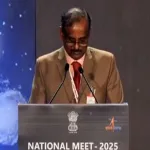In a welfare state, the government is entrusted with the responsibility of ensuring that essential services are accessible and affordable to all citizens. This includes not only the provision of infrastructure but also the regulation and delivery of services such as healthcare, education, utilities, and market oversight. The underlying principle is that these services, funded by taxpayers, should be managed in a way that prioritizes public welfare over profit. However, in recent years, there has been a noticeable shift towards the commercialization of public services. This trend has raised concerns about the erosion of the welfare state and the increasing burden on ordinary citizens.
The role of government in a welfare state
A welfare state is predicated on the idea that the government has a duty to protect and promote the economic and social well-being of its citizens. This involves not only providing essential services but also ensuring that these services are affordable, of high quality, and accessible to all, regardless of their economic status. The government’s role is to act as a guardian of public interests, using taxpayer money to build infrastructure, pay salaries, and cover the costs of running public services. In return, citizens expect these services to be delivered efficiently and equitably.
However, the commercialization of public services, where the focus shifts from public welfare to revenue generation, undermines this social contract. When public services are treated as commodities, the primary goal becomes profit rather than service to the public. This shift has significant implications for the accessibility, affordability, and quality of essential services, especially for those who are economically vulnerable.
The case of power services in Jammu and Kashmir
A glaring example of this trend is the transformation of the power sector in Jammu and Kashmir. Historically, the power department in the region, known as the Jammu and Kashmir Power Development Department (PDD), was a government-run entity that provided electricity as a public service. The department’s focus was on ensuring that electricity was available to all citizens at reasonable rates, in line with the principles of a welfare state.
However, in recent years, the PDD has been restructured into the Jammu and Kashmir Power Development Corporation (JKPDC), a move that signals a shift towards commercialization. The implications of this shift are far-reaching. The JKPDC, while still a public sector undertaking, operates with a greater focus on financial viability and cost recovery. This has led to an increase in tariffs and the introduction of stricter billing practices, which have burdened consumers, particularly those in economically weaker sections of society.
The consequences of this commercialization are evident in the region’s power supply issues. Consumers are now facing higher electricity bills, and there are frequent complaints about the quality of service. Power cuts, which were once infrequent, have become more common, affecting both residential and commercial users. The emphasis on revenue generation over service delivery has also led to a decline in customer satisfaction, as the corporation’s primary focus is no longer on providing an essential public service but on maintaining financial solvency.
The withdrawal of government control over markets
Another area where the commercialization of public service is evident in Jammu and Kashmir is in the government’s withdrawal from market regulation, particularly in the sale of essential goods such as mutton and chicken. Traditionally, the government played a significant role in controlling the prices of these commodities, ensuring that they remained affordable for the average citizen. This was especially important in Kashmir, where mutton and chicken are staple foods for a large portion of the population.
However, in recent years, the government has reduced its involvement in price regulation, allowing market forces to dictate prices. This has led to significant price hikes, with mutton and chicken becoming increasingly expensive. The lack of government oversight has also affected the quality of these products, as sellers and dealers, driven by profit motives, are less concerned with maintaining standards.
The impact of this shift is felt most acutely by lower and middle-income families, for whom these staple foods are becoming increasingly unaffordable. The government’s withdrawal from price regulation in the market has effectively left consumers at the mercy of sellers, who are free to set prices as they see fit. This not only undermines the concept of a welfare state but also exacerbates economic inequality, as essential goods become less accessible to those who need them most.
The broader implications of commercialization
The commercialization of public services in Jammu and Kashmir is reflective of a broader trend that is being observed in many parts of the world. Governments, often under pressure to reduce public spending and improve efficiency, are increasingly adopting market-based approaches to the provision of public services. This involves either outright privatization or the adoption of corporate practices within public sector entities.
While proponents of commercialization argue that it leads to more efficient service delivery and reduces the burden on public finances, the reality is often more complex. In many cases, commercialization leads to higher costs for consumers, reduced access to essential services, and a decline in service quality. This is particularly problematic in a welfare state, where the government is expected to prioritize the needs of its citizens over profit.
In the context of Jammu and Kashmir, the shift towards commercialization has had several negative consequences. The increase in electricity tariffs, coupled with declining service quality, has placed a significant burden on consumers. The government’s withdrawal from market regulation has led to higher prices and reduced quality for essential goods, disproportionately affecting lower-income households. These developments raise important questions about the role of the government in a welfare state and the extent to which it should be involved in the provision and regulation of public services.
The ethical concerns of commercializing public services
Beyond the practical implications, the commercialization of public services raises significant ethical concerns. At its core, a welfare state is based on the principle of equity – the idea that all citizens, regardless of their economic status, should have access to essential services. When these services are commercialized, this principle is compromised. Access to services becomes increasingly dependent on one’s ability to pay, leading to a situation where the wealthy have access to better services, while the poor are left with substandard options or are excluded altogether.
In Jammu and Kashmir, the commercialization of the power sector and the deregulation of food markets highlight this ethical dilemma. The shift towards revenue generation in the power sector means that those who can afford to pay higher tariffs enjoy uninterrupted power supply, while those who cannot are often left in the dark. Similarly, the deregulation of food markets has made essential commodities like mutton and chicken unaffordable for many families, undermining their ability to maintain a basic standard of living.
These developments are not just a failure of policy but a breach of the social contract that underpins the welfare state. When governments prioritize profit over public welfare, they undermine the trust that citizens place in them. This erosion of trust can have far-reaching consequences, leading to social unrest and a decline in the legitimacy of government institutions.
The need for rebalancing public service provision
Given the negative impacts of commercialization, there is a pressing need for governments to rebalance their approach to public service provision. This does not necessarily mean a complete rejection of market-based approaches but rather a reassertion of the government’s role in ensuring that essential services remain accessible, affordable, and of high quality.
In Jammu and Kashmir, this could involve re-evaluating the structure and mandate of the Jammu and Kashmir Power Development Corporation. While financial viability is important, it should not come at the expense of service delivery. The government could consider implementing subsidies for lower-income households or investing in infrastructure improvements to reduce power outages. Similarly, there is a need for renewed government intervention in the food market to prevent price gouging and ensure that essential commodities remain affordable for all citizens.
Furthermore, there is a need for greater transparency and accountability in the provision of public services. Citizens should have access to information about how public funds are being used and should have a voice in decisions that affect their access to essential services. This could be achieved through public consultations, participatory budgeting, or the establishment of independent regulatory bodies that oversee service delivery.
Conclusion
The commercialization of public services represents a significant departure from the principles of the welfare state. In Jammu and Kashmir, this trend has led to higher costs for essential services, reduced access for lower-income households, and a decline in service quality. These developments raise important ethical and practical questions about the role of government in a welfare state and the extent to which market-based approaches should be applied to the provision of public services.
Ultimately, the government must strike a balance between financial sustainability and the need to protect the welfare of its citizens. This requires a renewed commitment to the principles of equity and social justice that underpin the welfare state. By reasserting its role in the provision and regulation of essential services, the government can ensure that all citizens, regardless of their economic status, have access to the services they need to lead healthy, productive lives.
(The author is a Social Activist and National TV debater. The Views expressed are his own and can be reached on @[email protected])








